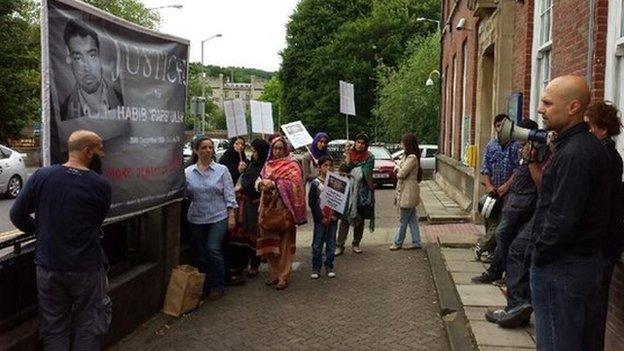Habib Ullah death: Seven-year wait for conduct hearing
- Published
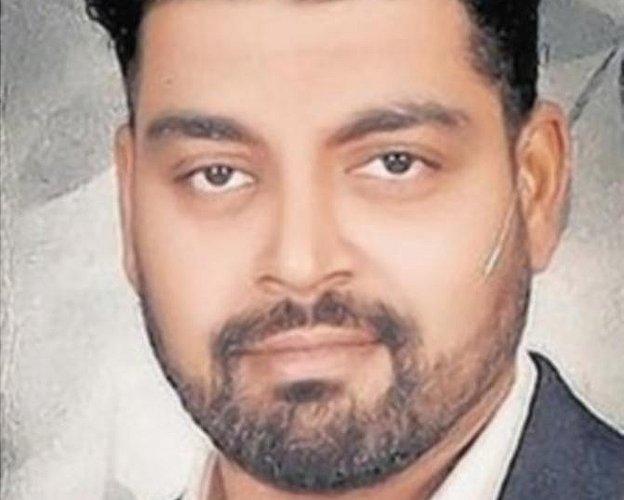
Habib Ullah, 39, of Slough, Berkshire, was part of a group searched as they sat in a car in High Wycombe in 2008.
The actions of five officers during and after the death of a father-of-three will be aired in public later. Until recently, nearly every police disciplinary hearing was held behind closed doors.
Habib Ullah, 39, of Slough, Berkshire, died after he and a group of friends were searched by police in High Wycombe in 2008
Mr Ullah, known to friends and family as Paps, collapsed and went into cardiac arrest during the search and was later pronounced dead in hospital.
While the Crown Prosecution Service (CPS) has not brought any charges against the officers involved, Thames Valley Police says there is a case of "gross misconduct" to answer.
Twenty seats have been set aside for members of the public at the hearing, to be held at the Shaw House building, which is expected to last until 15 June.

Who is involved?
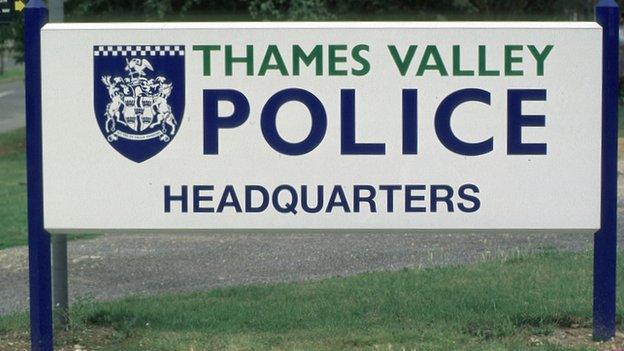
Each of the officers is accused of gross misconduct for allegedly breaching the "standards of professional behaviour"
Thames Valley Police would not disclose the names or ranks of the officers involved in advance of the hearing, nor the exact nature of the allegations against them.
But the BBC understands they are the same five who gave evidence during the inquest hearing.
Each is accused of gross misconduct for allegedly breaching "standards of professional behaviour".
If found to have committed gross misconduct, the punishments range from receiving "management advice" to immediate dismissal.
Mr Ullah's family will be present at the hearing, though their role in proceedings will strictly be as "observers".

What do people claim happened?
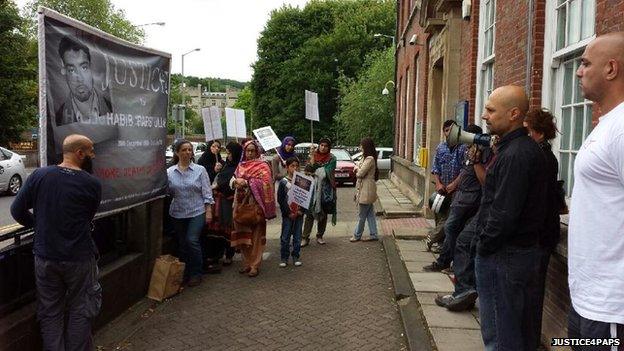
More than 13 vigils have been held calling for justice for Habib Ullah
The original search in Buckinghamshire on 3 July 2008 was carried out because police suspected Mr Ullah and his two friends had a stash of drugs in their car.
An initial inquest into his death - held in 2010 - heard how officers noticed Mr Ullah had a lump in his cheek after searching the group.
During one hearing, Emma Forbes, who was present at the time, said officers had restrained Mr Ullah and tried "to put their fingers in his mouth, several of them trying to get his arms behind his back."
Miss Forbes said there were five officers holding Mr Ullah face down on the ground at one point, and said they had "their hands around his throat, pressing down and putting their hands in his mouth at the same time".
When it became clear Mr Ullah was having problems breathing, police called an ambulance and he was taken to High Wycombe Hospital where he was pronounced dead.

Have there been other hearings?
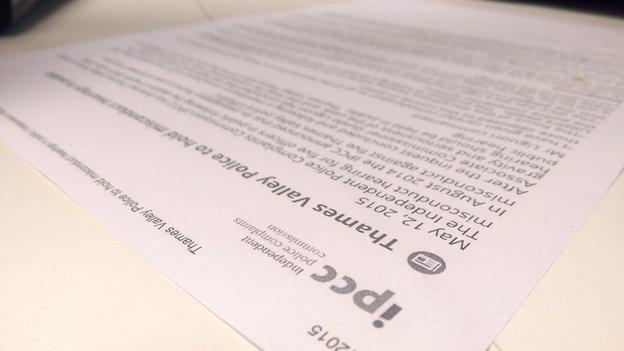
The first IPCC investigation, which allowed officers to submit written statements, cleared the officers of any wrongdoing
In its initial investigation, the Independent Police Complaints Commission (IPCC), allowed officers to submit written statements and in March 2010, the IPCC cleared the officers of any wrongdoing.
But then, while under oath during the 2010 inquest, the officers admitted removing potentially key evidence from their IPCC statements, claiming they were told to do so by a Police Federation lawyer.
The revelations meant the 2010 inquest was abandoned and a new IPCC investigation launched.
The investigation has been completed and the report shared with police and family but will not be published until the end of the misconduct hearing.
Following the revelations at the inquest, the CPS looked at whether criminal charges should be brought.
It considered a number of charges, including manslaughter by gross negligence, misconduct in public office, assault, acts tending and intended to pervert the course of justice and and perjury.
In October 2014, it decided not to proceed with any charges and an inquest jury returned a narrative verdict of death by misadventure in February this year

Why is the hearing being held in public?
Thames Valley Police was "directed" to hold the misconduct hearing in public by the IPCC.
The decision came amid a shake-up, external of the police disciplinary system by the Home Office which came into force on 1 May.
Previously, only a handful of cases have ever been heard in public.
The Government said the change would "increase transparency".

What do Mr Ullah's family think?
Mr Ullah's family say they are "genuinely pleased" the misconduct hearing is taking place.
Speaking after the February inquest, Mr Ullah's sister Nasrit Mahmood said the years since his death had been "enormously difficult".
"All these years of fighting has taken a tremendous toll on the family. There are still many matters that remain unresolved," she said.
"We are deeply unhappy about events that took place afterwards at the police station and the way statements were changed. We hope that the forthcoming disciplinary hearings will be both effective and will send out a clear message to officers about their conduct."
It is understood the family are planning a civil case against Thames Valley Police alleging both assault and breaches of Article 2 of the Human Rights Act, concerning the right to life.
"But at the end of the day this is an employment process looking at gross misconduct," said family friend Saqib Deshmukh, of the Justice for Paps campaign.
"We may get something from this but the hardest thing for the family has been the length of time this has taken."
- Published14 May 2015
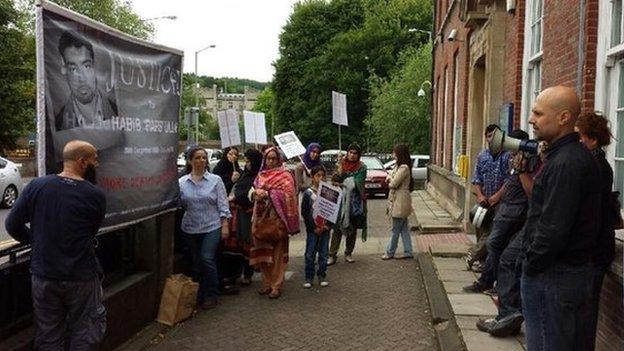
- Published4 February 2014
